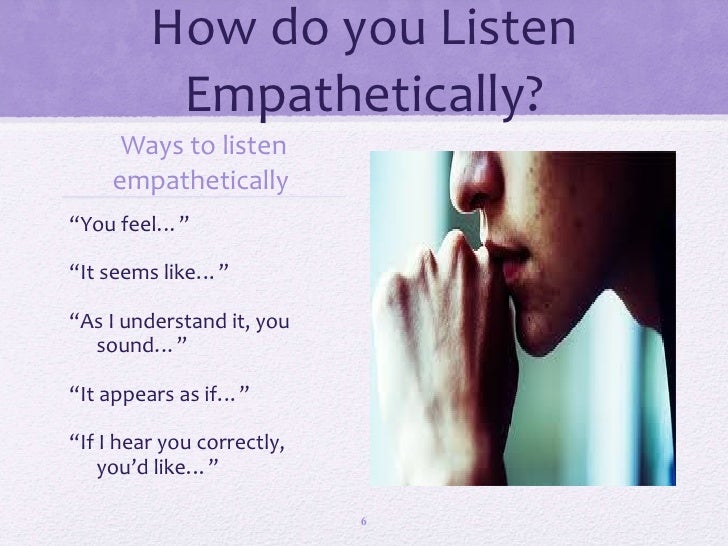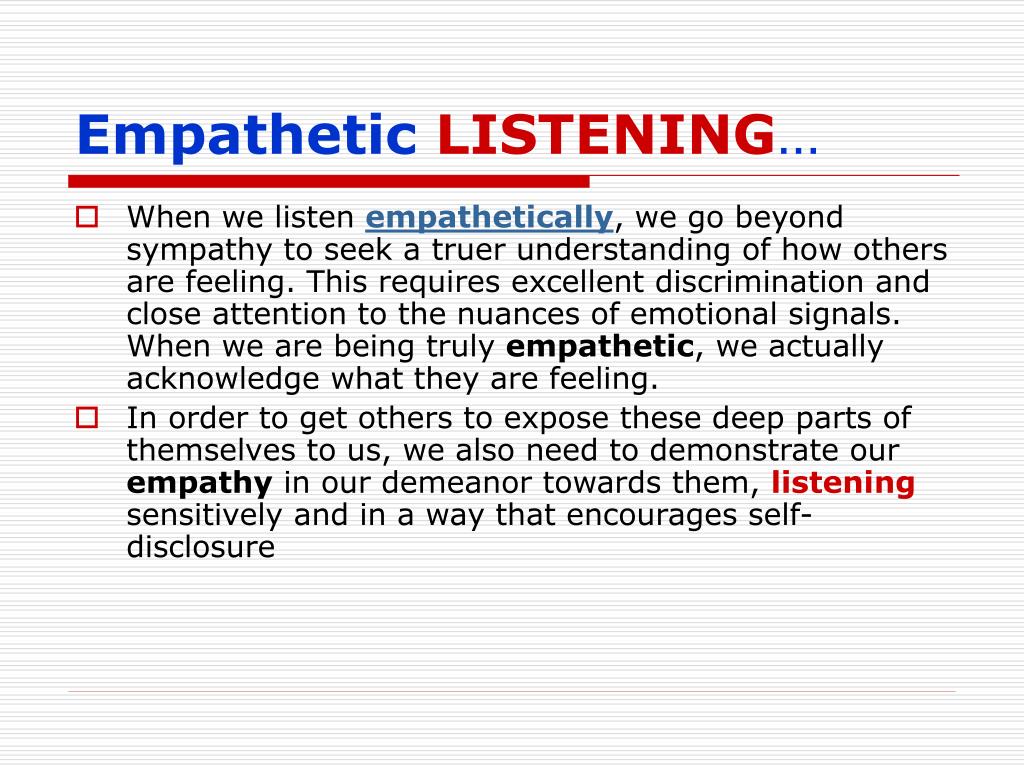

Maybe you overwhelm your listener with numbers.
Empathetic listening inside out professional#
As part of this soul-searching, it’s wise to reflect on how you approach professional conversations and what you could do to improve, Nawaz says. “Bad role models are as instructive as good ones,” she adds. Putting up with a colleague who’s a bad listener often causes you to “look in the mirror” and “question whether you’re a good listener yourself,” Riordan says. “You need to use your colleague’s time efficiently.”

Say: ‘Should we have a conversation, or would you like to see something in writing?’” Try to be a “flexible” and understanding conversation partner, Nawaz adds. She advises “ asking your colleague how they prefer to receive information. “Some people are visual and some are verbal,” Riordan says. While some of your colleagues may be flaky space cadets who are unable to pay attention, it’s also possible that they may be more visual people who have difficulty processing oral instructions.

Here are some strategies for working with colleagues who never seem to be listening. A colleague who doesn’t listen can also “have very negative consequences from an operational standpoint - there are often a lot of mistakes because projects don’t get executed correctly.” So it’s imperative to address the issue. “You might take it personally and think, ‘My colleague is so arrogant.’” Potential problems aren’t limited to “misunderstandings and hard feelings,” according to Christine Riordan, the president of Adelphi University and a leadership coach. “When someone is not fully present, it erodes the quality of what you say.” The experience might, for instance, “cause you to lose your train of thought” or “suppress what you originally planned to communicate.” It’s also possible that “you could get derailed into the drama of why it’s happening,” she adds. “Dealing with colleagues who don’t listen is both hard and frustrating,” says Sabina Nawaz, a global CEO and executive coach. Are there tactics you can use to encourage your colleagues to listen better? Should you talk to them about their poor listening skills? What’s the best way to deliver the message? Whether your colleagues interrupt you, ramble on, seem distracted, or are always waiting for their turn to talk, the impact is the same: You don’t feel heard, and the chances for misunderstandings - and mistakes - rise. He also dedicates service time to community development activities.It’s a challenge to work with people - peers, junior colleagues, or even bosses - who just don’t listen. He likes cooking (in development), walking, and biking.

He has been an entrepreneur in the industries of jewelry, gluten-free products, and natural honey in Costa Rica. He has experience in projects in Colombia, Bolivia, Ecuador, and Peru. He has more than 25 years of experience in the entire life cycle of socio-environmental projects. He was the Executive Director of a non-governmental organization for 18 years in the indigenous territories of Costa Rica. He is the director of the master’s program in Environmental Leadership and Management at the University for International Cooperation, UCI, where he integrates leadership with regenerative action. He is also an instructor in “Transformational Leadership”, “Intercultural Communication and Mutualism”, “Circular Economy”, “Nonprofit-Management”, “Quality Management”, “Project Design” and “Evaluation of Socio-Economic Projects”. Luis has a Master’s degree in Management of Natural Resources from INCAE, a postgraduate in business, and a Bachelor’s degree in Agricultural Economics from the University of Costa Rica.


 0 kommentar(er)
0 kommentar(er)
